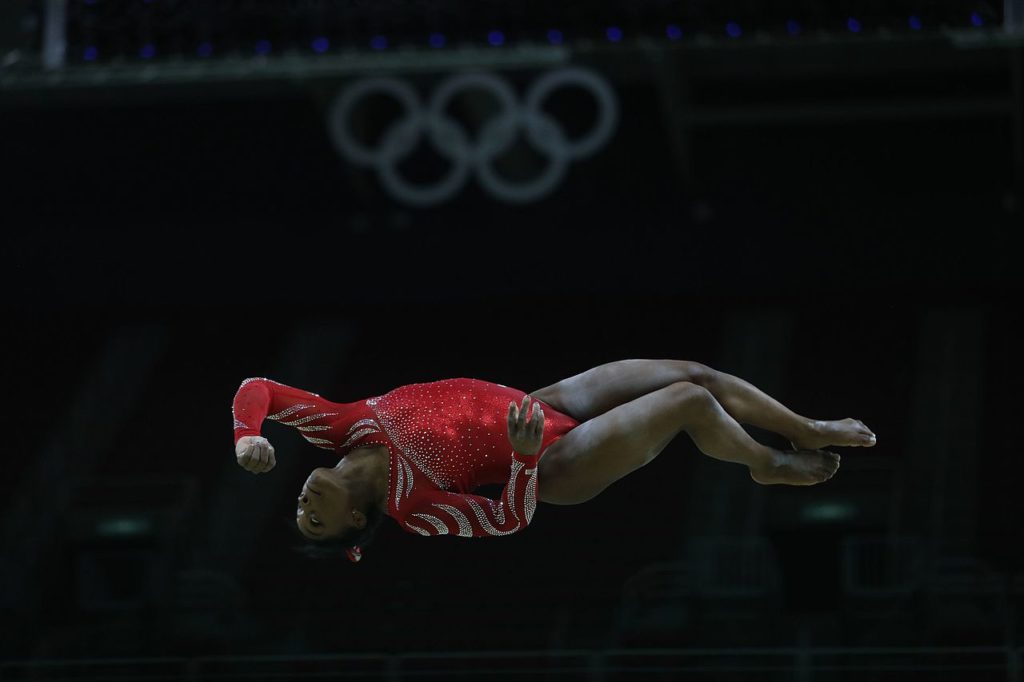More than gymnastics
In The Cut this week, Camonghne Felix captures Simone Biles in writing as deftly as a fast-shutter camera.
“Watching her is like trying to catch the light,” Felix writes in a profile that discusses the gymnast’s decision to stand on the sidelines during much of the Tokyo Olympics, due to a break that wasn’t a bone: “it was something in her spirit, an injury that could not be explained by CAT scan or X-ray,” Felix puts it.
Camonghne Felix is a virtuoso herself, in the realm of writing. She brings depth and nuance to this sports story, making it bigger than athletics, in the same way she reaches beyond the realm of entertainment in a May 2021 Vanity Fair profile of director Barry Jenkins.
I’ve discovered Felix’s writing this year, and I enjoy the insight she brings to diverse topics and larger perspective to profiles of public figures. In her piece about Biles, she enlarges the scope to a problem faced by Black women and girls: “Talented, genius, used up by institutions, forgotten about when we are the ones in need of protections,” Felix writes, joining Biles in this population. “It’s no wonder her body resisted.”

As a former gymnast, I’ve watched the sport evolve in recent years to include mature women among its leaders – Simone Biles foremost. Unfortunately, this evolution is due in part to abuse and neglect at the hands of USAG officials. But Biles, 24, and other gymnasts have pushed not only the upper age for competition (when I was a kid, 19 was old for an Olympic gymnast) but the level of self-possession they bring to their careers. Elite gymnasts are no longer pixies managed by powerful coaches or corporate sponsors but mature athletes who make good choices for themselves.
Felix gets this in her piece. “Simone Biles gets to decide what it means to be Simone Biles now,” she writes. “She gets to decide what she gives up. It’s up to her what comes next, if anything at all.”